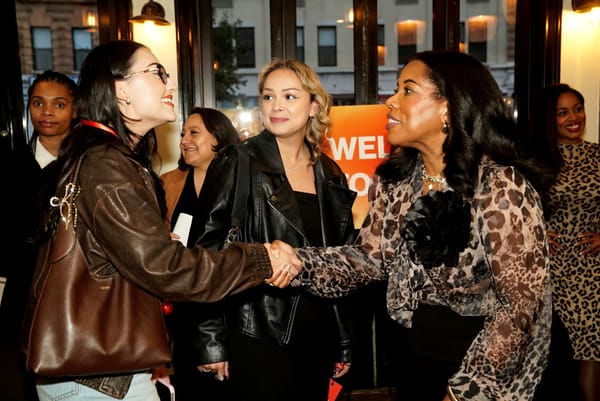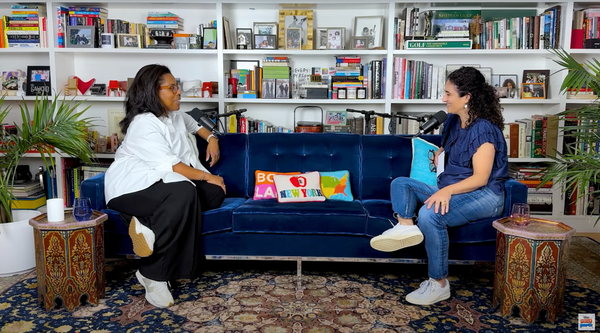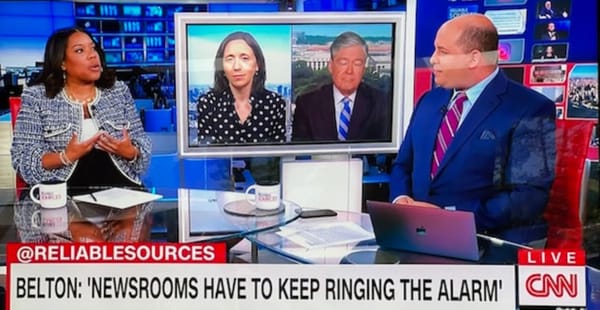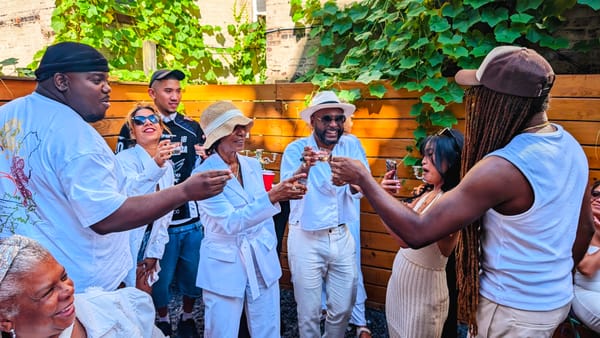If You're Down, Forget Leaning In — Reach Out
Whether you have agoraphobia like me or are just extremely introverted, the answer to your depression and loneliness is the thing you fear the most — human interaction.
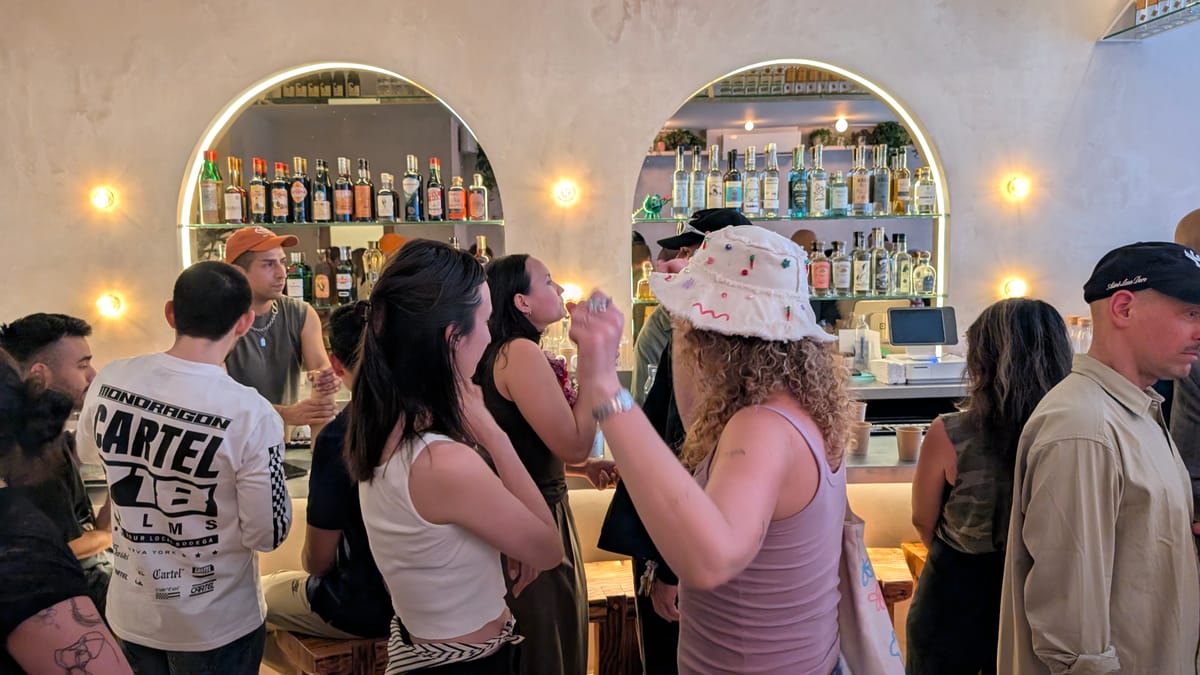
In my late 20s and early 30s, I had a severe case of agoraphobia. It lasted several years.
I could barely get out of bed, let alone leave my house to go to work. I was lonely, depressed, and always, always exhausted. Everything about the outside world sounded scary and intimidating. I didn't trust myself, and I definitely didn't trust other people. I would spend my time watching basic television, painting, writing a never-ending novel, or watching the same movies over and over and over again.
I thought the solution to my pain was to look inward and unpack. That I could start going out again, "after I felt better." But I didn't get better the more I stayed in bed or looked inward. I only got worse until I started abusing alcohol with my anti-anxiety medication. This led to me struggling with suicidal ideation to the point where I ended up in the hospital.
I was hospitalized for suicidal thoughts four times between 2004 and 2009 — losing five years of my life to bipolar disorder, a severe mood disorder that is marked by its extreme, and at times rapid, mood swings. After my fourth and last hospitalization in 2009, my doctor and I realized I was on too much medication and had too little activity or social engagement. He recommended that I go out and pursue my dreams, even though at the time I thought my devotion to my career was making me ill. Instead, the doctor argued the opposite. Hiding from the world and shunning human contact was actually making me worse. I needed a balance. I needed to learn how to listen to my body when it's tired or needs alone time, but not to overindulge in either going out or staying at home. I had to find something in the middle.
So after that visit, I launched myself back into "the real world," going on a three-city "tour" where I visited Boston, New York, and Washington, D.C. to talk about politics and race as part of my old pop culture and politics blog, The Black Snob. The results were astounding.

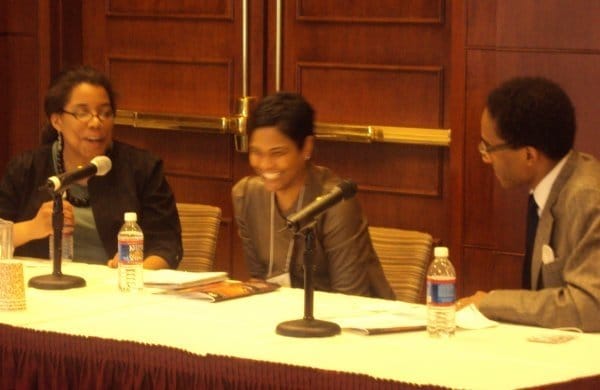
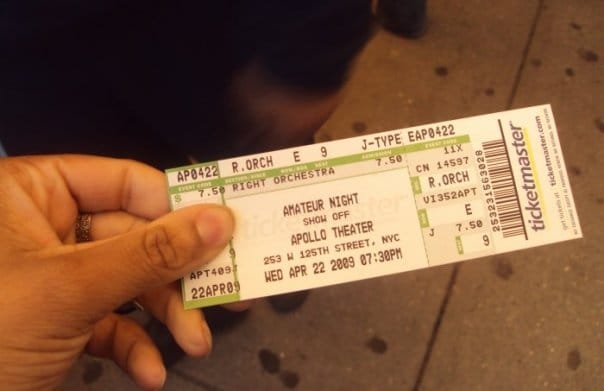
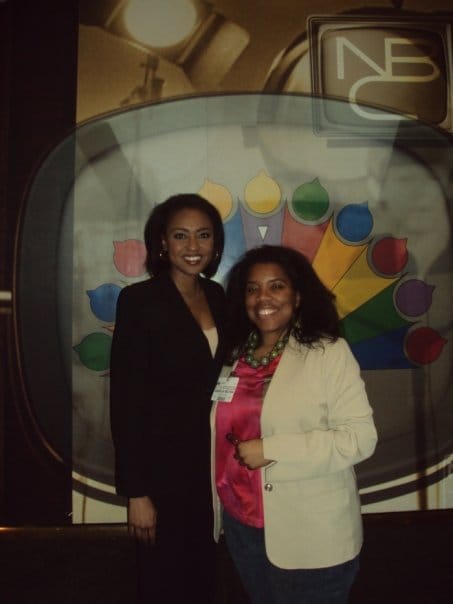
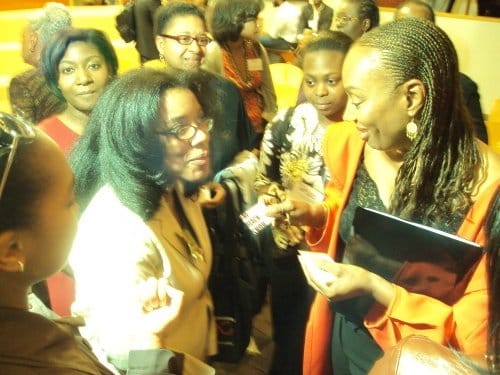
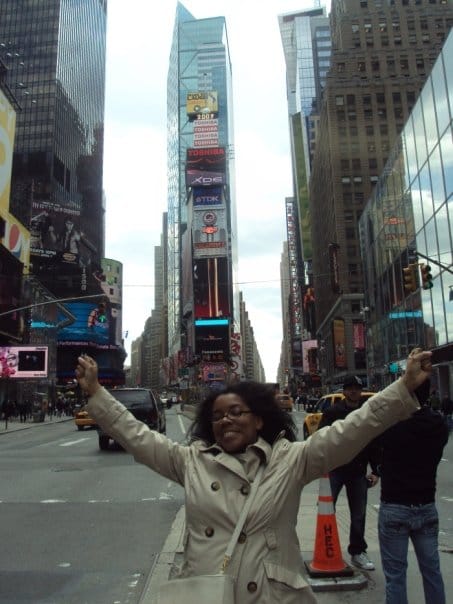
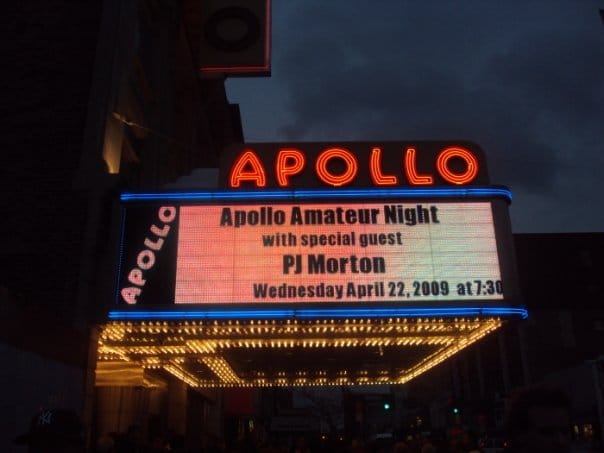
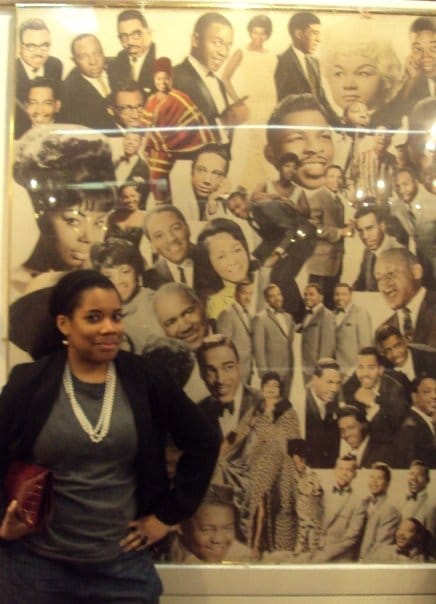
While it was initially terrifying to step outside my comfort zone, meet strangers, and participate in panels and dinners, talking about race and politics in three cities I'd never visited before, it was also life-affirming and exhilarating. It was then I realized life is meant to be lived, and living means leaving your house sometimes.
The more I pushed myself to go back to being social again (I'm an extrovert by nature, but have introverted tendencies when I'm depressed or have anxiety), the healthier I became. I soon realized my problem wasn't my high-pressure career or that I was "broken" inside — the problem was that there is no substitute for real life.
Today, thanks to technology, you don't have to ever leave your bubble. You don't have to talk to anyone you disagree with if you don't want to. You don't have to know your neighbors. You don't have to talk to a stranger on the train or the Uber driver. You don't have to deal with the rudeness of crowds or the anxiety that sometimes comes with social interaction. But have you ever considered that the reason the real world makes you anxious is the same reason I was hiding in my house for years — you're out of practice when it comes to dealing with people, and that's because you're not accustomed to social interaction. Without consistent human interaction, you eventually become awkward and shy, making the experience of being outside a "negative" one instead of a net positive. You associate it with your anxiety, instead of conquering what the anxiety actually is — fear.
I was afraid of the outside, and the only cure for that is to face your fear. It doesn't mean you have to become a public gadfly, person-about-town all of a sudden. You can find that balance between going out and staying in. But your anxiety, which you think is triggered by people, is actually triggered by being inexperienced or not used to social interaction. If you build up a tolerance to the outside and dive in, learning from trial and error what works for you and what doesn't, you will find your life is more fulfilling. And going outside is more than just going to a bar or restaurant, it's going for a walk in a park, it's doing volunteer work in your community, it's finding a home church if you're religious, it's taking a cooking class or going to the gym, it's finding community with those who have similar interests to your own. The answer to your malaise is the same thing you thought was causing it — people.
Human beings are social, even those who are naturally more introverted. We're not meant to spend hours upon hours alone staring at various screens. The screens are just a pacifier, a crutch to fill the emptiness with consumption instead of things that bring real value to your life.
A long time ago, when I was in the middle of figuring out my illness, I wrote a "rock opera" from the perspective of a depressed writer living in Oakland, Calif., trying to buy a couch for a Halloween party at his home. The signature song from this never-published show is a ditty I wrote called "Empty/Things."
The main character, who has more in common with me than the man who inspired him, sings a song about how he's going to choose to buy more shit rather than engage with the world because things provide that dopamine hit you crave. Just forget that there is no real replacement for actual human interaction, self-growth, a healthy family, a social life, or community building.
I want to fill up my life with things
Lots and lots of pretty things
TV says joy is what things bring
Gonna fill up my life with things
Gonna get me a credit card
And I’m gonna max it out
Cause I’m gonna buy a couch
Buy a couch
For my house
So it won’t look
So I won’t be
So you cannot see
My empty!
Things!
I’m gonna buy!
Things!
Instead of therapy, I’m gonna try
Things!
Cause everybody needs … Things!
Things!
I don’t have a lot of …
Things!
But I’m gonna make a spot for …
Things!
Cause joy is what …
Things bring!
The song, which was the last song I wrote for the musical, was rooted in my debilitating shopping habit, which was thinly masking how desperately lonely I was. A family-oriented person, I missed my tribe as I moved from city to city in pursuit of my career. Out of that loneliness and the boredom that came with it, I started blindly consuming, wasting money on things I did not need. But the things were no replacement for the outside. They were no replacement for real life.
In Derek Thompson's piece this past January for The Atlantic, he writes about "The Antisocial Century," breaking down how more people are spending time alone in front of screens, rather than making real connections in real life. The end result is that people have more to entertain them at home than ever, yet people are lonelier than ever. Thompson posits that we've traded the chaos and creativity of in-real-life interactions for the safety and security of self-imposed introversion. The end result? Everyone is painfully awkward. The birth rate is rapidly dropping. Men and women are existing in their own silos rather than confronting their issues head-on, and from religion to politics, everyone is choosing echo-chambers over healthy interaction.
Richard V. Reeves, the president of the American Institute for Boys and Men, told me that for men, as for women, something hard to define is lost when we pursue a life of isolationist comforts. He calls it “neededness”—the way we make ourselves essential to our families and community. “I think at some level, we all need to feel like we’re a jigsaw piece that’s going to fit into a jigsaw somewhere,” he said. This neededness can come in several forms: social, economic, or communitarian. Our children and partners can depend on us for care or income. Our colleagues can rely on us to finish a project, or to commiserate about an annoying boss. Our religious congregations and weekend poker parties can count on us to fill a pew or bring the dip.
But building these bridges to community takes energy, and today’s young men do not seem to be constructing these relationships in the same way that they used to. In place of neededness, despair is creeping in. Men who are un- or underemployed are especially vulnerable. Feeling unneeded “is actually, in some cases, literally fatal,” Reeves said. “If you look at the words that men use to describe themselves before they take their own lives, they are worthless and useless.”
It's true that if you leave your house, you might get hurt. That was the reason for my agoraphobia — I was desperately afraid that I'd get hurt, sick, or even die if I left my house. I was also scared of strangers, fearing the anxiety that came with social interactions. But alone in my apartment, I could just as easily choke on food (something I seem to do with increasing frequency as I get older), and die alone in the middle of Netflix n' Chilling. And what a lonely, boring way to die! Once I embraced the chaos of the outside and learned how to navigate it again, life felt more meaningful, and I felt more alive. I found more purpose.
Today, I still have agoraphobia (because I have anxiety, which is because I have a severe mood disorder), so I made a pact with myself that no matter what, I will not spend more than three consecutive days alone in my house. After three days, no matter how depressed or anxiety-riddled I am, I have to leave. And you know what? I always feel better when I do. I never regret calling my friend Christina and going to hot yoga with her, or going for a walk in Bed-Stuy with my friend Junny. And I've never regretted spending a late night out dancing with my boyfriend Joe. Not even that one time we went out, and I started crying on the dance floor because I was so overwhelmed with the pressures of life in our crumbling society.
What's wild is that despite knowing the answer to my problem is not inward, but outward, I have to relearn this lesson constantly because my first instinct when I'm down is to always stay inside. It's to always lick my wounds and boo hoo while enjoying the real "opiate of the masses" in the form of old episodes of Real Housewives. Because I'd rather watch Dorinda Medley and LuAnn de Lesseps go nuts in the "Berzershires," than have my own adventure by going out and engaging with the world. I have to remind myself that the key to overcoming my blues is choosing to reach out, instead of navel-gazing myself into oblivion.
This is also the reason why I started ANTISOCIAL. I wanted to write about the thing we can't seem to describe — that emptiness — and how the answer to filling it isn't always more things, drugs, therapy, or screen time. Sometimes the answer is mentoring a young person. Sometimes the answer is going to lunch with a friend. Sometimes the answer is joining a reformer pilates class. Sometimes the answer is talking to the stranger next to you in line.
So when you're down, don't go inside to numb yourself, go outside and touch grass. I promise you, it'll be OK. Sometimes it's better than OK. Sometimes it is the salve that will save your soul.
Because one isn't company, confront your fear of the crowd and dive in.
